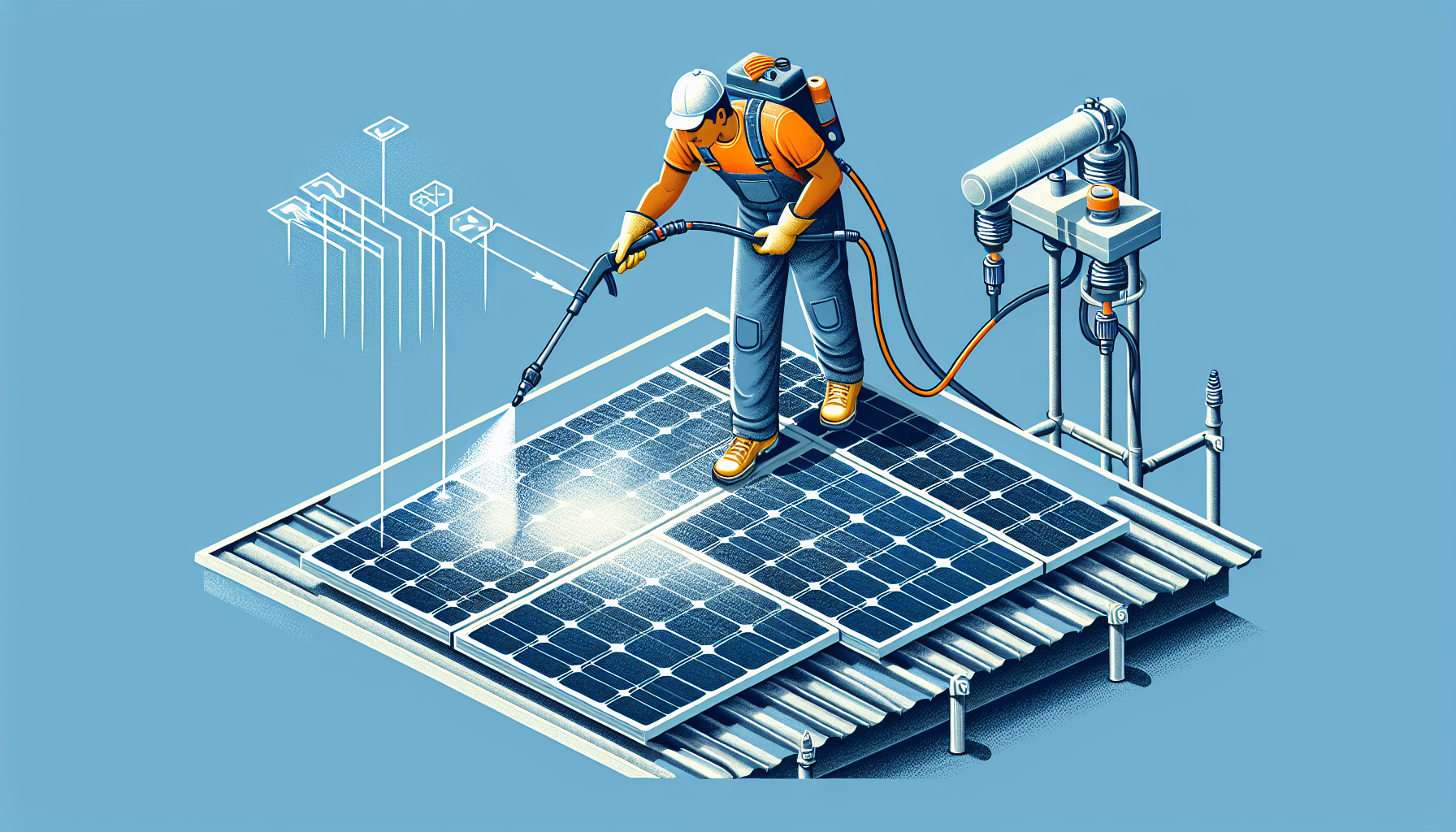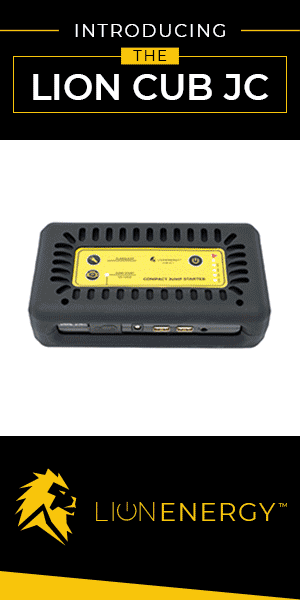Discover the benefits and precautions of pressure-washing solar panels in this informative article. Learn how to maintain efficiency and longevity while keeping your panels clean and operating at their best.
Introduction
So, you’ve got yourself some shiny, energy-saving solar panels on your rooftop, but now you’re wondering if they can handle a little pressure washing.
The answer is a resounding yes! In this informative article, we will explore the benefits and precautions of pressure washing your solar panels.
We’ll delve into the dos and don’ts, guiding you on how to maintain the efficiency and longevity of these eco-friendly power generators.
Get ready to uncover the secrets of keeping your solar panels squeaky clean and functioning at their best!
Potential Risks of Pressure Washing Solar Panels
Damage to Solar Panel Components
When pressure washing solar panels, there is a risk of damaging the delicate components of the panels.
The high-pressure water can potentially dislodge or break important parts, such as the wiring, connectors, or even the solar cells themselves.
This could result in decreased efficiency or complete failure of the panel.
Electrical Hazards
Pressure washing involves working around electrical equipment, which can be extremely hazardous if not done properly.
If water comes into contact with electrical connections or exposed wires, it can lead to electric shocks or short circuits.
This can not only damage the solar panels but also pose a significant risk to the person performing the pressure washing.
Voiding Manufacturer’s Warranty
Most solar panel manufacturers have specific guidelines for maintenance and cleaning.
If these guidelines explicitly state that pressure washing is not recommended or allowed, using this method could void your warranty.
It is essential to follow the manufacturer’s recommendations to ensure that your warranty remains valid.
Benefits of Pressure Washing Solar Panels
Improving Efficiency
Regularly pressure washing solar panels can help optimize their performance by removing dust, dirt, and other debris that can accumulate on the surface.
Clean panels can absorb more sunlight, converting it into electricity more efficiently. This can result in higher energy production and lower energy costs.
Enhancing Performance
Clean solar panels are capable of capturing and utilizing sunlight more effectively.
By pressure washing them, you can ensure that their surfaces are free from any obstructions that could hinder their performance.
This can lead to improved overall system output and a longer lifespan for your solar panels.
Removing Stubborn Debris
In areas with heavy pollution, pollen, bird droppings, or tree sap can accumulate on solar panels, making them less effective.
Pressure washing is an effective method for removing stubborn debris that may not come off with a simple rinse.
By getting rid of these obstructions, you can maintain the optimal performance of your solar panels.

Effectiveness of Pressure Washing
Cleaning Efficiency
Pressure washing is a highly effective method for cleaning solar panels, as it uses a strong stream of water to remove dirt and debris.
The high-pressure water can effectively dislodge particles that have adhered to the surface of the panels, resulting in a thorough cleaning.
Time and Effort Saved
Compared to manual cleaning methods, pressure washing can save you a significant amount of time and effort.
Instead of scrubbing each panel individually, a pressure washer can cover a large surface area in a relatively short amount of time.
This makes it a convenient option for maintaining and cleaning solar panels.
Dealing with Tough Stains
Pressure washing is particularly helpful for dealing with tough stains or caked-on dirt that cannot be easily removed by other means.
The high-pressure water can effectively break down and remove these stubborn stains, leaving the panels clean and free from any residue that may affect their performance.
Proper Pressure Washing Techniques
Using the Right Pressure
It is crucial to use the proper pressure setting on your pressure washer when cleaning solar panels.
Using excessive pressure can damage the panels, while using too little pressure may not effectively clean the surface.
It is recommended to start with a lower pressure setting and gradually increase if necessary.
Applying Proper Angles
To ensure effective cleaning, it is important to spray the water at the correct angle.
The ideal angle for pressure-washing solar panels is usually around 45 degrees.
This angle allows the water to reach under any dirt or debris, effectively dislodging and removing it.
Avoid spraying directly at a perpendicular angle, as it may increase the risk of damage.
Using Soft Brushes or Brooms
In some cases, using soft brushes or brooms in addition to pressure washing can help remove any remaining dirt or debris.
However, it is essential to use brushes specifically designed for solar panel cleaning to avoid scratching the surface.
Gentle, sweeping motions should be used when brushing to prevent any damage to the panels.
Using Suitable Cleaning Solutions
In certain situations, using appropriate cleaning solutions can enhance the effectiveness of pressure washing.
However, it is essential to check with the panel manufacturer or a professional before using any cleaning solutions.
Improper or harsh chemicals can damage the panels or leave a residue that affects their performance.

Safety Measures for Pressure Washing
Disconnecting the Solar Panel System
Before starting any pressure washing, it is crucial to disconnect the solar panel system from the electrical grid.
This ensures that there is no electricity flowing through the panels, reducing the risk of electric shock.
Always follow the proper procedures for disconnecting and reconnecting the system outlined by the manufacturer.
Ensuring Adequate Personal Protective Equipment
When pressure washing solar panels, it is important to wear appropriate personal protective equipment (PPE).
This may include gloves, safety glasses, and waterproof footwear.
PPE helps protect against any debris or water spray that may cause injury or discomfort during the cleaning process.
Avoiding Direct Spraying on Electrical Connections
To minimize the risk of electrical hazards, avoid direct spraying on electrical connections or exposed wires.
Focusing the spray away from these areas reduces the chances of water entering and causing damage.
Exercise caution and be mindful of the electrical components while pressure washing.
Working on a Secure and Stable Surface
Always ensure that you are working on a secure and stable surface when pressure washing solar panels.
Avoid slippery or unstable platforms, as they can increase the risk of falling or damaging the panels.
If needed, use appropriate ladders or scaffolding to reach the panels safely.
Alternatives to Pressure Washing
Mechanical Cleaning
Mechanical cleaning methods involve using tools such as squeegees, brushes, or microfiber cloths to manually clean the solar panels.
While they may require more time and effort compared to pressure washing, mechanical cleaning methods can be effective in removing dirt and debris without the risk of damage from high-pressure water.
Chemical Cleaning
Chemical cleaning involves using specially formulated cleaning solutions to dissolve and remove dirt and grime from solar panels.
These solutions are typically sprayed onto the surface and left to loosen the debris before rinsing with water.
Chemical cleaning methods can be effective but should be used cautiously to avoid any damage to the panels.
Using a Hose with Gentle Pressure
Another alternative to pressure washing is using a hose with gentle pressure to rinse the panels. Although this method may not remove stubborn stains, it can effectively remove loose dirt and debris. It is a safer option for those who are not comfortable with using pressure washers or for areas where water pressure is limited.
Cleaning Frequency for Solar Panels
General Recommendations
The general recommendation for cleaning solar panels is to perform maintenance at least once or twice a year.
However, the cleaning frequency may vary depending on the location, climate, and environmental factors.
Areas with heavy dust, pollution, or frequent bird droppings may require more frequent cleaning.
Weather and Environmental Factors
Weather conditions and environmental factors can significantly impact the cleanliness of solar panels.
Rain can help rinse off some dirt and debris, but drier climates or areas with more pollution may require more frequent cleaning.
It is important to regularly inspect the panels and clean as necessary to maintain optimal performance.
Inspection and Monitoring
Regular inspection and monitoring of solar panels can help determine when cleaning is necessary.
Look for signs of dust, residue, or any visible obstructions on the surface.
If the performance of the panels seems to be decreasing or there is a noticeable drop in energy production, it may be time to clean them.
Professional Cleaning Services
Advantages of Hiring Professionals
Hiring professional cleaning services for your solar panels offers several advantages.
Professionals have the knowledge, experience, and proper equipment to effectively clean the panels without causing any damage.
They can also identify potential issues or damage that may require further attention, ensuring the longevity and performance of your solar panel system.
Considerations for Choosing a Cleaning Service
When choosing a professional cleaning service for your solar panels, there are a few considerations to keep in mind.
Look for reputable companies that specialize in solar panel cleaning and have positive customer reviews.
It is also important to inquire about their cleaning methods and equipment, and whether they are familiar with the specific requirements of your solar panel system.
DIY vs. Professional Cleaning
Costs
One of the main considerations when deciding between DIY and professional cleaning is the cost.
DIY cleaning methods, such as pressure washing, can be more cost-effective in the short term.
However, professional cleaning services may offer long-term cost savings by ensuring optimal performance and prolonging the lifespan of your solar panels.
Skill and Expertise
Cleaning solar panels may seem like a straightforward task, but it requires proper knowledge and technique to avoid potential damage.
Professional cleaners are trained in the specific requirements and techniques for cleaning solar panels effectively.
If you are not confident in your ability to safely and efficiently clean the panels, it may be best to hire a professional.
Time and Convenience
Cleaning solar panels can be a time-consuming task, especially if you have a large or complex system. D
IY cleaning methods may require more time and effort compared to hiring professionals who can efficiently clean the panels.
If convenience and saving time are important to you, it may be worthwhile to invest in professional cleaning services.
Conclusion
Pressure washing solar panels provides numerous benefits, such as improving efficiency, enhancing performance, and effectively removing stubborn debris.
However, it is essential to consider the potential risks, such as damage to components and electrical hazards.
By following proper pressure washing techniques and safety measures, you can minimize these risks and maintain the optimal performance of your solar panel system.
Alternatively, you can explore other cleaning methods, such as mechanical cleaning or chemical cleaning, or choose to hire professional cleaning services.
Assess your own skills, time availability, and budget to determine the best approach for keeping your solar panels clean and functioning at their best.

